Author: Mingmin Xifeng
Source: Quantum Bit
ChatGPT creator, about to enter the chip-making field!
The latest revelation is that OpenAI is exploring the development of its own AI chips and is also evaluating potential acquisition targets.
Recently, its recruitment website has also posted positions related to AI hardware development and evaluation.
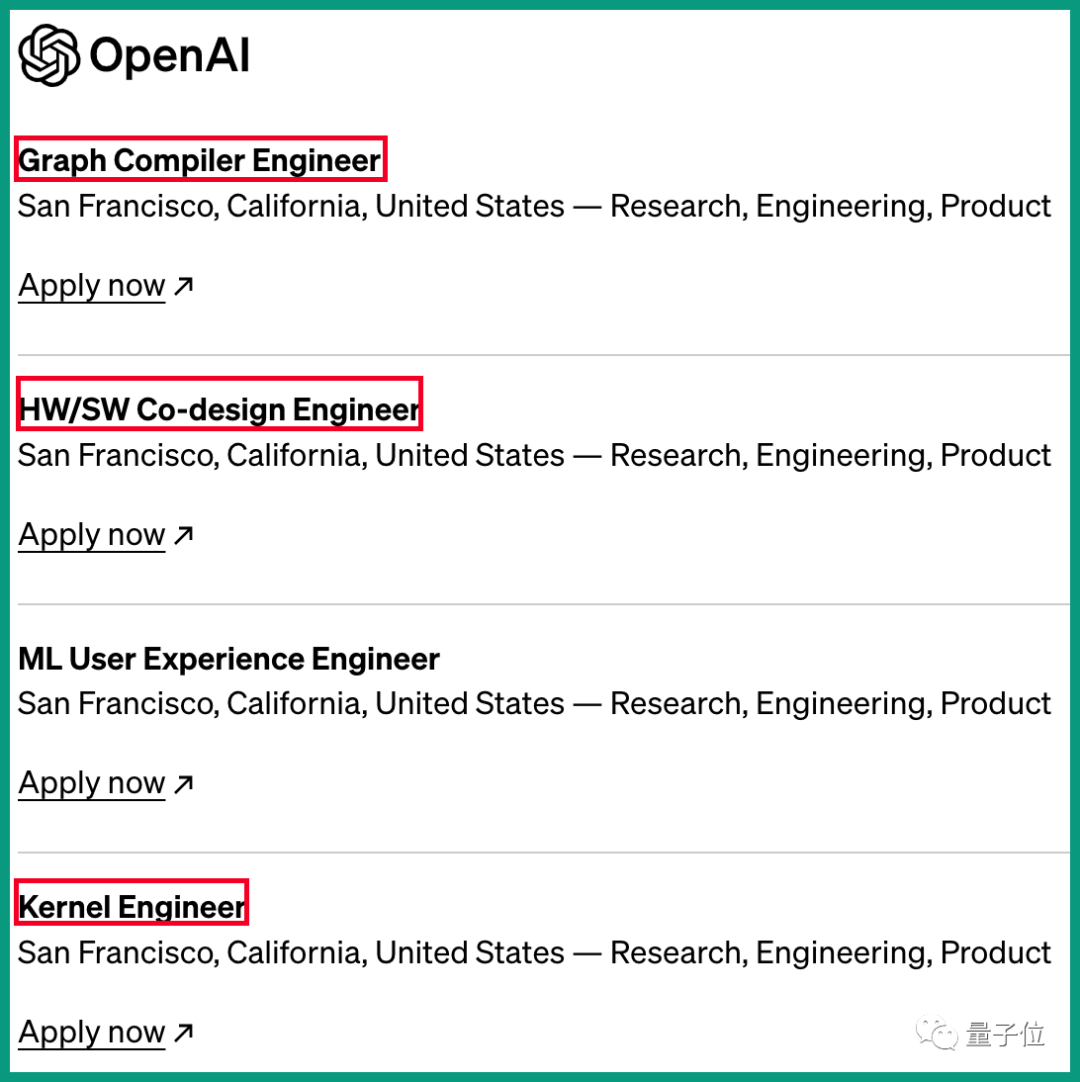
Breaking free from excessive reliance on NVIDIA, OpenAI is getting serious.
Since the rise of ChatGPT, computing power anxiety has loomed over major AI companies. Whether it's model training, inference, or API calls, all require computing power as support, and the number of GPUs has become a hard indicator of AI companies' strength.
Currently, NVIDIA dominates the GPU market with a market share of over 80%.
At the same time, GPUs are not only in short supply but also expensive. Developing AI chips in-house also means a significant reduction in computing costs.
Therefore, it is entirely reasonable for OpenAI to develop its own chips.
But it's also shocking—
Because this means that OpenAI is looking more and more like a "tech giant."
Especially with recent news that OpenAI plans to launch an "artificial intelligence" smartphone, is in talks with former Apple chief designer Jonathan, and plans to raise $1 billion in financing from SoftBank.
Given these developments, it's no wonder some people have commented:
For OpenAI, this is such an exciting moment!
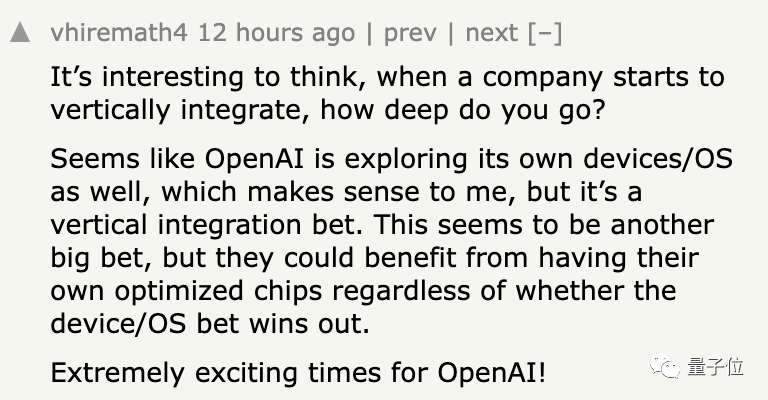
Ultraman has invested in at least 3 chip companies
According to insiders, OpenAI has been discussing how to deal with the shortage and high cost of GPUs since last year.
Developing AI chips in-house can fundamentally solve the problem, but the road ahead is "long and arduous."
Industry insiders believe this is a major move and a significant investment, which may require spending hundreds of millions of dollars annually. And even if OpenAI invests significant resources, success is not guaranteed.
Reuters reports that OpenAI has not yet decided on further action internally.
In comparison, progress in acquiring a chip company may be faster.
Insiders say that OpenAI has considered conducting due diligence on potential acquisition targets. But who specifically, is not yet known.
So after the news of OpenAI's chip development came out, there has been widespread speculation about who will be acquired by OpenAI.
Naturally, chip companies in which OpenAI and CEO Sam Altman have invested are the first to be scrutinized.

Looking at the list, there are currently at least 3 companies worth paying attention to:
Cerebras
Rain Neuromorphics
Atomic Semi
Cerebras is a US chip startup that has attracted attention for its launch of an ultra-large chip.
Its AI supercomputing processor, Cerebras WSE, is larger than an iPad. The second generation has 26 trillion transistors and 850,000 AI-optimized cores.
They have also released a brain-scale technology that can run neural networks with over 1.2 quadrillion connections.
This year, Cerebras also open-sourced 7 GPT models, with parameter counts ranging from 111 million to 13 billion.
At the same time, Cerebras also provides cloud services for large model training and inference, with Jasper being one of their clients.
So far, the company has raised $720 million in funding.
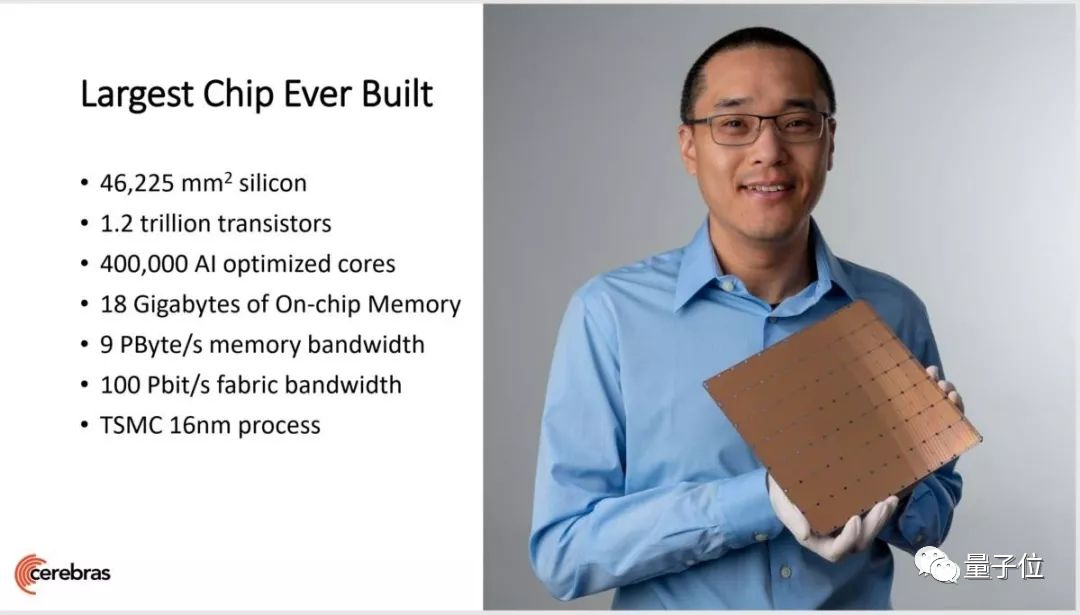
Rain Neuromorphics is a neural-morphic chip startup.
Their chip is designed to mimic the way the brain works and is intended to serve AI algorithm development.
The first AI platform they launched can perform AI inference and training, claiming to improve efficiency by 140 times compared to existing products.
Sam Altman is an early investor in the company and has stated that this neural-morphic approach can significantly reduce the cost of AI development and is expected to help achieve true AGI.
In February last year, Rain Neuromorphics received a new round of $25 million in investment.
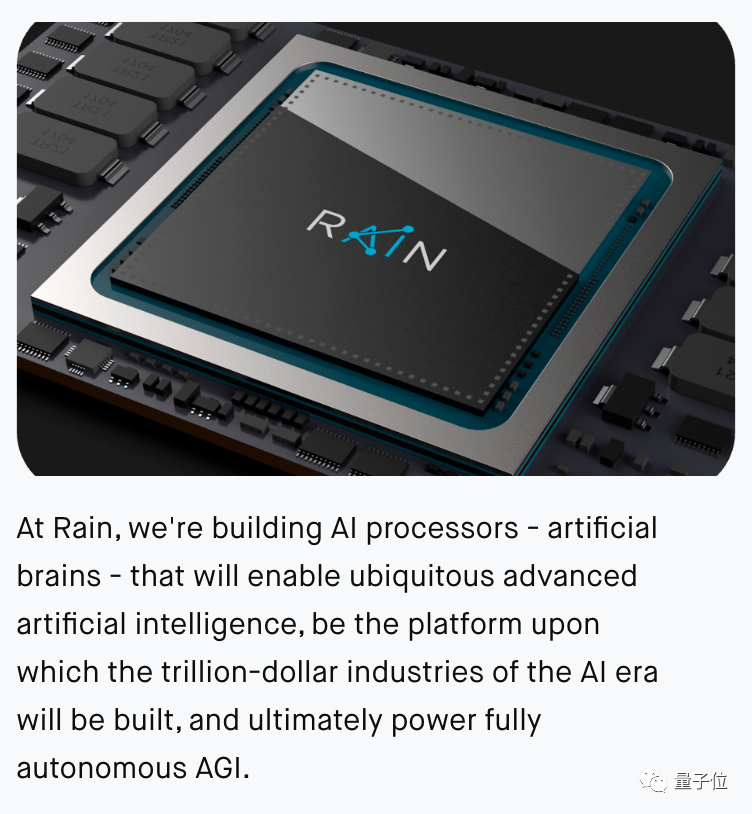
In addition, Sam is also keeping an eye on an earlier-stage chip startup called Atomic Semi.
It was co-founded by "garage chip maker" Sam Zeloof and industry heavyweight Jim Keller.
Sam Zeloof has a high following on YouTube and Twitter, and over the years, he has been documenting how he handcrafts chips in his garage.
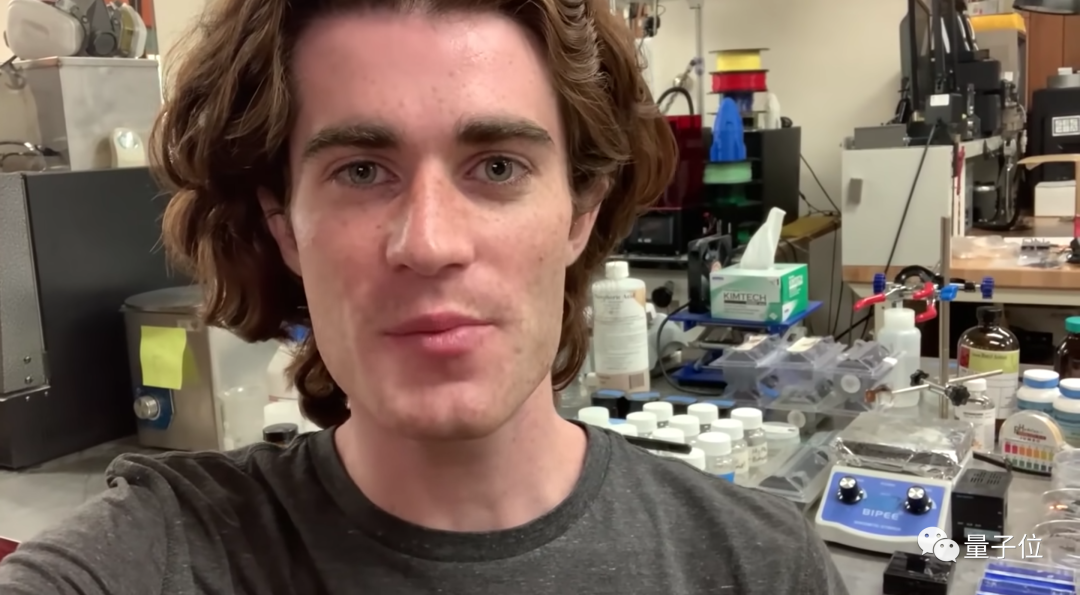
Jim Keller has previously worked at AMD and Apple.
He was the chief architect of AMD K8 and was involved in the development of Athlon (K7) and Apple A4/A5 chips. He is also a co-author of the x86-64 instruction set and the HyperTransport interconnect specification.
The company they co-founded, Atomic Semi, aims to simplify chip production and hopes to produce cheaper chips in a matter of hours.
OpenAI's venture fund participated in its $15 million seed round, valuing the company at $100 million.
In addition, netizens have listed more possible options, such as sambanova.ai, Graphcore, and others.
In short, having more independent AI chips is an important part of OpenAI's future strategy.
Just as Google has achieved stronger control over underlying chips through its in-house TPU.
On the other hand, Microsoft, which has a close relationship with OpenAI, has recently been rumored to be unveiling its own chips.
Microsoft's chip may debut in November
According to Imaginative, Microsoft's first in-house chip is planned to be launched next month, with the specific date likely to be set at the November 14 Microsoft Seattle Ignite conference.
This chip, codenamed "Athena," is designed to compete with NVIDIA's H100 and has been in the works since 2019. It is said that OpenAI has already secretly tested it.
The reason behind this is naturally to reduce dependence on NVIDIA.
As a leading global cloud provider, Azure requires a large number of AI processors. Especially after collaborating with OpenAI, there are reports that Microsoft has ordered at least tens of thousands of NVIDIA chips.
Therefore, in recent years, Microsoft has accelerated its chip development process, first establishing a chip department led by former Intel executive Rani Borkar; then recruiting talent from various places, including former Apple chip architect Filippo; and also engaging in close cooperation with AMD.
Insiders have revealed that Microsoft has invested nearly $2 billion in chip development.
But what is worth noting is that Microsoft and OpenAI are independently developing chips. Once both enter the chip market, their positions will undergo subtle changes.
Some voices believe that this will further increase the "rift" between the two.
It is important to note that while Microsoft and OpenAI appear to be a perfect match on the surface, there are "undercurrents" at play.
The competition between New Bing and ChatGPT users is just one aspect of the complex reality.
For example, most Microsoft employees still do not have access to OpenAI's codebase, model weights, and other internal technologies.
Internal documents from Microsoft have also leaked, indicating that Azure salespeople are instructed to explain to customers that Microsoft can provide more services than OpenAI.
Furthermore, OpenAI has already kept a trump card. After paying Microsoft and other VCs their profit limits, they can ultimately take back 100% of the shares.
However, these issues can be set aside for now.
Because at least Microsoft and OpenAI have reached an agreement on one thing—
They cannot let NVIDIA continue to make such huge profits.
Reference links:
[1] https://www.reuters.com/technology/chatgpt-owner-openai-is-exploring-making-its-own-ai-chips-sources-2023-10-06/
[2] https://news.ycombinator.com/item?id=37790058
[3] https://interestingengineering.com/innovation/openai-may-produce-ai-chips
[4] https://www.maginative.com/article/microsoft-to-unveil-in-house-ai-chip-reducing-reliance-on-nvidia/
— End —
免责声明:本文章仅代表作者个人观点,不代表本平台的立场和观点。本文章仅供信息分享,不构成对任何人的任何投资建议。用户与作者之间的任何争议,与本平台无关。如网页中刊载的文章或图片涉及侵权,请提供相关的权利证明和身份证明发送邮件到support@aicoin.com,本平台相关工作人员将会进行核查。



